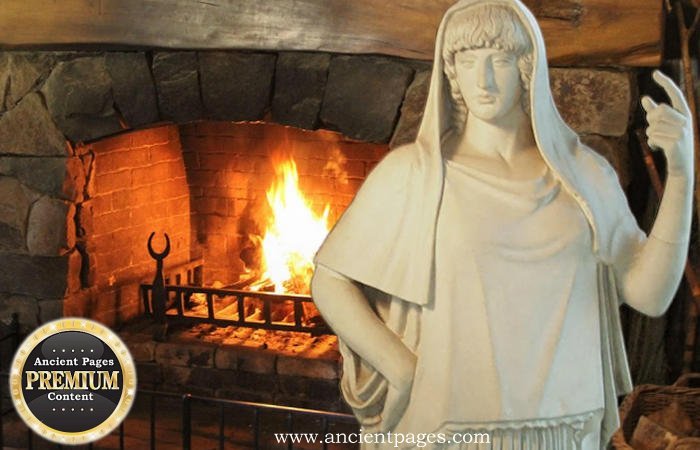A. Sutherland – AncientPages.com – In every Greek home, the hearth was much more than a source of warmth—it embodied a profound sense of sacredness. Often found in a square room with a porch upheld by two columns, this space gracefully balanced both religious and administrative roles within the household.

The hearth itself rested between four posts, and its smoke was drifting upward through an opening in the ceiling. This design was as thoughtful as it was functional, mirroring the interplay between daily life and spiritual devotion.
It was Hestia’s domain.
What is especially heartwarming is how this sacred center welcomed all, from the wealthiest elites to those with little to their name.
This simple act carried a significance far beyond its outward appearance—it marked the moment they came under the sacred protection of the gods.

This is a preview of our premium article available only to members of Ancient Pages.
Become a member to read more – Click here
If you are already a member and have logged in to your account, you can access the article here

See also:
Proteus: Prophetic Greek Sea God Who Knew All Things, Past, Present And Future
Mysterious Disappearance Of King Aegeus Of Athens After His Wedding
Shining Swords: Magical Artifacts That Symbolized Power, War, Punishment And Righteousness
More Premium Articles








